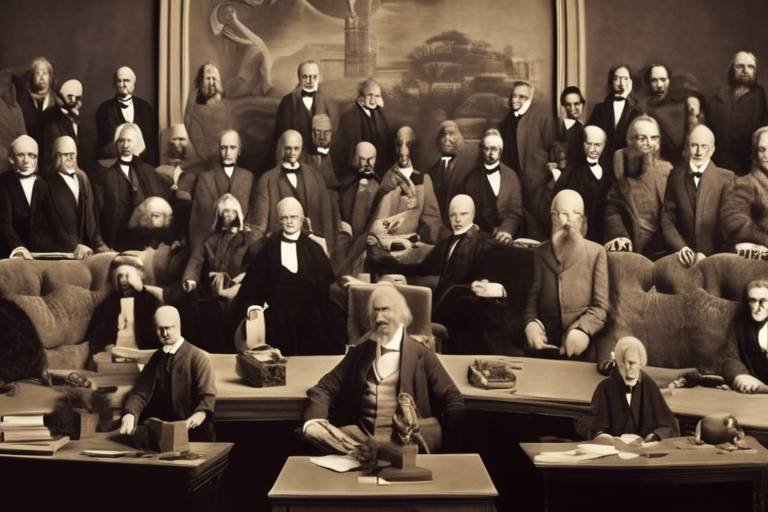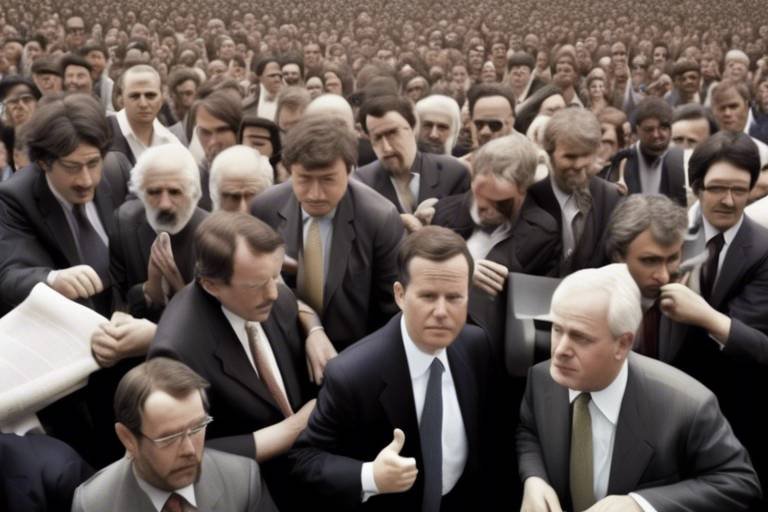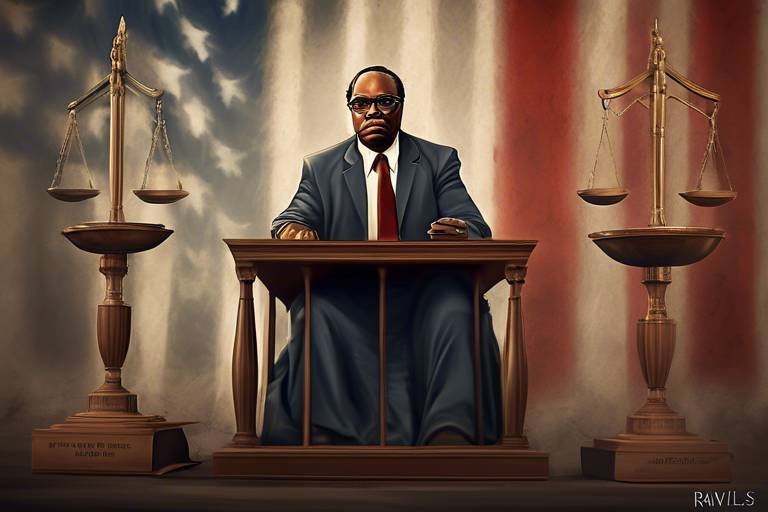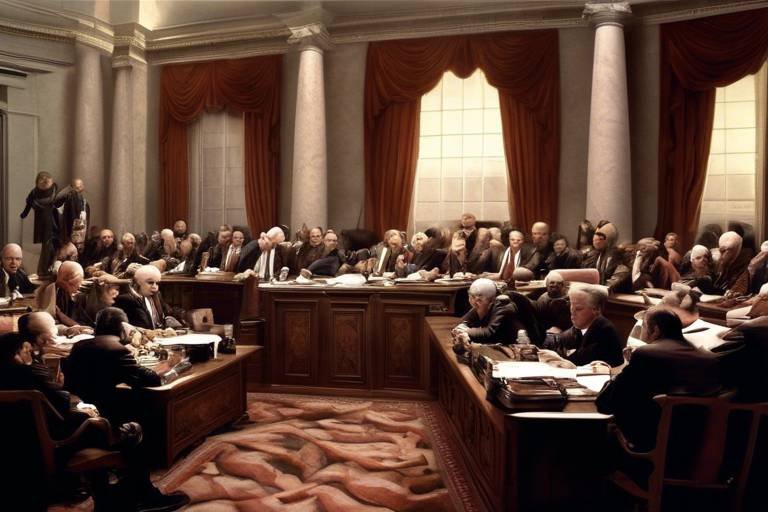Is Utopian Philosophy Feasible in Modern Politics?
In today’s fast-paced world, the idea of a perfect society often seems like a distant dream, a shimmering mirage that dances just out of reach. Yet, the concept of utopian philosophy continues to captivate thinkers, politicians, and everyday citizens alike. But the question remains: can these idealistic visions realistically influence modern governance and societal structures? This article dives into the depths of utopian thought, exploring its historical roots, contemporary relevance, and the challenges it faces in today's political landscape.
Utopian philosophy, at its core, seeks to envision societies where justice, equality, and happiness reign supreme. It critiques existing political frameworks, urging us to dream bigger and better. Imagine a world where poverty, crime, and injustice are mere footnotes in history. Sounds appealing, right? However, as we peel back the layers of this philosophical onion, we uncover complexities that challenge the feasibility of such ideals in the pragmatic realm of politics.
Historically, various thinkers have proposed their visions of utopia, from Thomas More's Utopia to Karl Marx's communist ideals. Each of these visions reflects the societal issues of their time, offering not just a critique but also a roadmap for change. Yet, as we review these historical examples, we must ask ourselves: have these ideas evolved in a way that can address the multifaceted challenges we face today?
Modern political movements often grapple with these utopian ideals. From environmental activism to social justice campaigns, many current ideologies draw inspiration from the dream of an ideal society. However, the viability of these movements in addressing today's challenges is a subject of intense debate. Can we truly implement these lofty ideals in a world that often prioritizes the practical over the idealistic?
Despite its allure, utopian philosophy isn't without its critics. Detractors argue that such ideals are impractical and can lead to dangerous consequences when pursued relentlessly. The pursuit of unattainable perfection can sometimes result in authoritarian regimes, where the ends justify the means. This raises a critical question: how do we balance our dreams for a better society with the harsh realities of human nature and governance?
Examining case studies of societies that have attempted to implement utopian principles provides valuable insights. Some have succeeded, creating communities that reflect their ideals, while others have failed spectacularly, serving as cautionary tales of overreach. By analyzing these experiments, we can extract lessons that inform our understanding of what is achievable in modern politics.
The tension between utopian ideals and realpolitik is a recurring theme in political discourse. Realpolitik often emphasizes practicality and power dynamics over idealistic visions, leading to a clash that can stifle progressive change. This begs the question: can we find a middle ground where idealism and pragmatism coexist, fostering policies that reflect our highest aspirations while remaining grounded in reality?
Moreover, advancements in technology play a pivotal role in shaping utopian visions. While technology has the potential to enhance our lives and create more equitable societies, it can also exacerbate existing inequalities and create new challenges. How we harness these advancements will significantly influence our ability to pursue utopian goals in the future.
As society continues to evolve, so too does the discourse surrounding utopian philosophy. The future role of these ideals in shaping political landscapes remains uncertain but promising. With the right balance of idealism and practicality, we may find ourselves inching closer to the utopian dreams that have inspired generations. Ultimately, the question isn’t just whether utopian philosophy is feasible in modern politics, but whether we have the courage to pursue it amidst the complexities of our world.
- What is utopian philosophy? Utopian philosophy envisions ideal societies that critique existing political frameworks, aiming for justice, equality, and happiness.
- Can utopian ideals influence modern politics? Yes, many contemporary movements draw inspiration from utopian thought, though their practicality is often debated.
- What are the critiques of utopian philosophy? Critics argue that utopian ideals can be impractical and may lead to authoritarianism when pursued without regard for human nature.
- How have historical utopian experiments fared? Historical case studies show a mix of successes and failures, providing lessons for modern political movements.
- What role does technology play in utopian visions? Technology can both aid and hinder the pursuit of utopian ideals, impacting social equity and governance.

Understanding Utopian Philosophy
Utopian philosophy is a fascinating lens through which we can examine the aspirations and dreams that societies have held throughout history. At its core, utopian philosophy envisions a perfect society, one where social, political, and economic structures align harmoniously to promote the well-being of all individuals. This concept isn’t merely a fanciful dream but a serious critique of existing systems, challenging us to rethink how we govern and interact with one another. Imagine a world where inequality, injustice, and suffering are nonexistent—sounds appealing, right? But how do we get there?
Historically, utopian ideas have emerged from the minds of thinkers who dared to dream big. From Plato’s “Republic” to Thomas More’s “Utopia”, these visions often serve as a critique of the status quo. They push us to question the norms and values of our current political frameworks. For instance, More's depiction of a society where property is communal and everyone works for the common good challenges the individualistic tendencies of modern capitalism. This philosophical groundwork not only inspires hope but also ignites debates about the feasibility of such ideals in today’s world.
One of the key principles of utopian philosophy is its emphasis on collective well-being. It advocates for systems that prioritize the needs of the community over individual desires. This idea resonates with many contemporary movements that seek to address systemic issues like poverty, inequality, and environmental degradation. However, the challenge lies in translating these lofty ideals into actionable policies that can be implemented in a world rife with complexities and contradictions.
Moreover, utopian philosophy often intersects with various political ideologies, including socialism, anarchism, and even some strands of liberalism. Each of these ideologies interprets utopia differently, leading to diverse visions of what an ideal society might look like. For example, while socialists may envision a society where wealth is distributed equally, anarchists might advocate for a stateless society where individuals govern themselves freely. This plurality of interpretations illustrates the rich tapestry of ideas that utopian philosophy encompasses.
In modern discourse, utopian philosophy serves as both an inspiration and a cautionary tale. It encourages us to dream of better futures while reminding us of the potential pitfalls of pursuing unattainable ideals. This duality raises important questions: Can we realistically implement utopian principles in our current political systems? Or do these ideals serve merely as a guiding star that reminds us of the values we should strive for?
As we delve deeper into the complexities of utopian philosophy, it becomes clear that understanding its nuances is essential for engaging with contemporary political debates. The challenge for us today is to harness the power of these idealistic visions while remaining grounded in the realities of our world. In doing so, we can foster a political environment that not only aspires to be better but also takes tangible steps towards achieving a more equitable and just society.

Historical Context of Utopian Ideas
Utopian ideas have been a part of human thought for centuries, serving as a mirror reflecting our deepest desires for a perfect society. The term "utopia," coined by Sir Thomas More in his 1516 work of the same name, refers to an imagined community or society that possesses highly desirable or nearly perfect qualities. But what does this really mean? Simply put, utopian philosophy seeks to create a vision of an ideal world, often critiquing the shortcomings of existing political systems and social structures. This idealism has roots that stretch back to ancient civilizations, where philosophers like Plato envisioned perfect societies in works such as "The Republic."
Throughout history, many thinkers have contributed to the evolution of utopian thought. In the Renaissance, the focus shifted towards humanism and the belief that individuals could shape their own destinies. This was a significant departure from the previously dominant religious views that often dictated social order. The Enlightenment further propelled these ideas, as philosophers like Jean-Jacques Rousseau and John Locke introduced concepts of social contracts and individual rights, laying the groundwork for modern democratic ideals.
Fast forward to the 19th century, and we see a surge of utopian experiments, particularly in the wake of the Industrial Revolution. Social reformers such as Charles Fourier and Robert Owen proposed communal living arrangements that aimed to alleviate the harsh realities of industrial life. These visions were not merely theoretical; they led to real-life attempts at establishing utopian communities, such as New Harmony in Indiana and the Fourierist phalansteries in France. While many of these experiments ultimately failed, they highlighted the persistent human quest for a better society.
In the 20th century, the rise of totalitarian regimes presented a paradoxical twist to utopian thinking. While some leaders, like Stalin and Mao, claimed to pursue utopian goals, their methods often led to oppression and suffering, revealing the dark side of idealism when wielded by those in power. This contradiction has sparked ongoing debates about the feasibility of utopian philosophy in political practice, raising the question: can we ever achieve a truly perfect society without sacrificing individual freedoms?
Today, utopian ideas continue to evolve, influenced by contemporary issues such as climate change, social justice, and technological advancements. As we grapple with these challenges, the historical context of utopian philosophy offers valuable insights into how idealism can inspire political movements and societal change. It's crucial to understand that while utopian visions may seem unattainable, they can serve as guiding stars, pushing us toward progress and innovation. The past teaches us that the journey towards a better society is fraught with obstacles, yet it is a journey worth embarking upon.
- What is the origin of the term "utopia"? The term was coined by Sir Thomas More in his book published in 1516.
- Have there been successful utopian experiments? While many have failed, some communities have thrived temporarily, demonstrating that aspects of utopian ideals can be implemented.
- How do modern political movements incorporate utopian ideas? Many contemporary movements advocate for social justice, environmental sustainability, and equality, drawing inspiration from historical utopian philosophies.
- Can utopian ideals coexist with realistic governance? Yes, while utopian ideals may seem impractical, they can inspire policies and reforms that lead to meaningful change.

Utopianism in Contemporary Politics
In today’s fast-paced political landscape, utopian ideals often serve as a beacon of hope and inspiration, even amidst the chaos and confusion. The idea of a perfect society has captivated thinkers and dreamers for centuries, and it continues to resonate in contemporary politics. But how do these lofty visions manifest in the real world? Are they mere fantasies, or can they actually influence policy and governance?
Modern political movements frequently draw from utopian principles, aiming to create a society that reflects the aspirations of its people. For instance, the rise of progressive politics in various parts of the world showcases a desire for systemic change that aligns with utopian ideals. Advocates for social justice, environmental sustainability, and economic equality are not just dreaming; they are actively working towards implementing policies that could lead to a more equitable future.
Consider the Green New Deal in the United States. This ambitious proposal aims to tackle climate change while simultaneously addressing economic inequality. It’s a perfect example of how utopian philosophy can inspire real-world action. Proponents argue that by investing in renewable energy and creating jobs, we can achieve a sustainable future that benefits everyone. Yet, critics often label such initiatives as unrealistic or overly ambitious. This tension between aspiration and practicality is a hallmark of contemporary political discourse.
Moreover, movements like democratic socialism have gained traction, advocating for a society where basic needs are met for all citizens. This vision aligns closely with utopian ideals, emphasizing community, cooperation, and shared prosperity. However, the challenge remains: how do we transition from idealistic visions to tangible policies that can be realistically implemented without causing disruption?
To further illustrate the impact of utopianism in contemporary politics, let’s examine a few key movements:
| Movement | Utopian Vision | Key Goals |
|---|---|---|
| Green New Deal | Sustainable Future | Combat climate change, create jobs |
| Democratic Socialism | Equitable Society | Universal healthcare, free education |
| Universal Basic Income | Financial Security for All | Eliminate poverty, boost economy |
While these movements are rooted in utopian philosophy, they face significant hurdles. The political landscape is often dominated by realpolitik, where decisions are made based on practical considerations rather than idealistic visions. This clash between utopianism and pragmatism raises important questions: Can we realistically implement these ideals without facing backlash? How do we balance ambition with feasibility in policy-making?
Ultimately, the presence of utopianism in contemporary politics serves as a vital reminder of the power of dreams. It challenges us to envision a better world while grappling with the complexities of governance. As we move forward, it’s crucial to find a way to bridge the gap between idealism and realism, ensuring that the pursuit of a better society does not become a mere fantasy but a tangible reality.
- What is utopianism in politics? Utopianism in politics refers to the belief in the possibility of creating a perfect society through idealistic policies and governance.
- How can utopian ideals influence modern politics? Utopian ideals can inspire movements and policies aimed at addressing social, economic, and environmental challenges, pushing for systemic change.
- What are some examples of contemporary utopian movements? Examples include the Green New Deal, democratic socialism, and universal basic income initiatives.
- Why do critics argue against utopianism? Critics argue that utopian ideals are often impractical and can lead to unintended consequences if pursued without consideration for real-world complexities.

Critiques of Utopian Philosophy
While utopian philosophy is often celebrated for its ambitious vision of a perfect society, it is not without its fair share of criticism. Detractors argue that these idealistic frameworks can be dangerously impractical, serving more as a mirage than a viable blueprint for governance. One of the primary critiques is that utopian ideals tend to overlook the complex realities of human nature. People are inherently flawed, driven by a myriad of motivations that often conflict with the harmonious existence envisioned in utopian models. This disconnect raises a crucial question: can a society truly function under the assumption that everyone will act selflessly and in the interest of the collective?
Moreover, critics highlight the potential dangers of pursuing unattainable ideals. History has shown us that movements fueled by utopian visions can lead to authoritarian regimes, where the quest for a perfect society justifies oppressive measures. For instance, the attempts to create a communist utopia in the Soviet Union resulted in widespread suffering and loss of freedom. This raises another critical point: the line between striving for a better world and imposing a rigid system of governance can be perilously thin.
Additionally, the critique of utopian philosophy often extends to its feasibility in modern politics. As we navigate a world filled with complex socio-economic challenges, the question arises: can we afford to chase ideals when practical solutions are needed? The focus on achieving a perfect society can detract from addressing pressing issues such as poverty, inequality, and climate change. Instead of waiting for a utopian future, should we not prioritize actionable steps that can lead to incremental improvements in our society?
In light of these critiques, it becomes evident that while utopian philosophy can inspire and motivate, it is essential to approach it with a critical eye. The allure of a perfect society must be tempered with an understanding of human limitations and the realities of governance. As we explore the intersection of utopian ideals and practical politics, it is crucial to strike a balance between vision and reality, ensuring that our pursuit of a better world does not lead us down a path of disillusionment.
- What are the main criticisms of utopian philosophy? Critics argue that utopian ideals are often impractical, overlook human flaws, and can lead to authoritarianism.
- Can utopian ideals be applied in modern politics? While they can inspire change, applying them requires careful consideration of practical realities.
- What historical examples illustrate the dangers of utopianism? The Soviet Union's attempt to create a communist utopia is a prominent example of utopian ideals leading to oppressive regimes.
- How can we balance utopian ideals with practical governance? By focusing on incremental improvements while keeping visionary goals in mind, we can work towards a better society without losing sight of reality.

Case Studies: Utopian Experiments
Utopian experiments have long fascinated thinkers and dreamers alike, serving as tangible attempts to manifest ideal societies. Throughout history, various groups have endeavored to create communities that reflect their visions of a perfect world. These experiments often reveal the complexities and challenges of translating lofty ideals into practical realities. Let’s explore a few notable case studies that illustrate both the successes and failures of utopian ideals in practice.
One of the most famous examples is the Oneida Community, founded in 1848 in New York by John Humphrey Noyes. This group sought to create a society based on shared property and communal living, rejecting traditional marriage and advocating for complex marriage, where all members were considered married to one another. While the community thrived for several decades, it ultimately disbanded in the late 19th century due to internal conflicts and external pressures. The Oneida experiment highlights how even the most idealistic visions can face significant obstacles when confronted with human nature and societal norms.
Another intriguing case is the Shaker movement, which emerged in the 18th century. The Shakers aimed to create a peaceful, egalitarian society characterized by celibacy, communal living, and a strong emphasis on craftsmanship and simplicity. Their communities flourished for a time, known for their innovative designs and sustainable practices. However, the Shakers faced a demographic crisis as their commitment to celibacy limited their growth. Today, only a few Shaker communities exist, serving as a poignant reminder of the challenges inherent in maintaining utopian ideals over generations.
On a more contemporary note, the EcoVillage movement represents a modern attempt to create sustainable communities that prioritize ecological balance and social equity. These villages often incorporate permaculture, renewable energy, and shared resources. For instance, the EcoVillage in Ithaca, New York, has successfully integrated these principles, fostering a sense of community while addressing environmental concerns. Such initiatives demonstrate that while utopian experiments may not achieve perfection, they can lead to meaningful progress in addressing pressing societal issues.
It's essential to acknowledge that not all utopian experiments have been successful. The Socialist experiment in the Soviet Union serves as a cautionary tale. Initially, the Bolsheviks aimed to create a classless society through radical reforms. However, the pursuit of this ideal led to authoritarianism, widespread repression, and economic challenges. The Soviet experience illustrates the potential dangers of imposing utopian visions without considering the complexities of human behavior and governance.
In summary, the exploration of utopian experiments reveals a rich tapestry of human aspiration, creativity, and the inevitable clash with reality. While some communities have achieved remarkable success in embodying their ideals, others have faced significant challenges or outright failure. These case studies remind us that the journey toward an ideal society is often fraught with obstacles, yet each attempt offers valuable lessons for contemporary political discourse.
- What is a utopian experiment? A utopian experiment is an attempt to create a community or society that embodies idealistic principles, often aiming for social harmony, equality, and sustainability.
- Why do utopian experiments often fail? Many utopian experiments fail due to internal conflicts, human nature, and the difficulties of sustaining idealistic principles in the face of practical challenges.
- Can modern societies learn from past utopian experiments? Absolutely! Analyzing the successes and failures of historical utopian experiments can provide valuable insights into contemporary political and social movements.

Utopian Ideals vs. Realpolitik
The clash between utopian ideals and realpolitik is a fascinating and often contentious aspect of political discourse. At its core, this tension highlights the struggle between the pursuit of an ideal society and the harsh realities of political life. Imagine, for a moment, a world where everyone lives in harmony, where resources are shared equitably, and where justice prevails without exception. This is the essence of utopian thought—a vision that, while inspiring, often seems to drift further away from our grasp as we navigate the complexities of modern governance.
Realpolitik, on the other hand, is grounded in the pragmatic aspects of politics. It emphasizes the importance of practical considerations over ideological ones. In other words, realpolitik is like a seasoned sailor who knows how to navigate through stormy seas, making decisions based on the winds and currents rather than an idealized map. This approach often prioritizes power dynamics, national interests, and immediate outcomes, which can starkly contrast with the aspirational nature of utopian philosophy.
To illustrate this dichotomy, consider the following key points:
- Utopian Ideals: These often promote visions of equality, justice, and harmony. They challenge the status quo and inspire movements aimed at social change. Think of figures like Thomas More, whose work "Utopia" sparked imaginations about what society could be.
- Realpolitik: This approach is characterized by a focus on practical outcomes, often at the expense of idealism. Leaders who embrace realpolitik may prioritize stability and security over moral or ethical considerations, sometimes leading to controversial decisions.
The interplay between these two perspectives can be seen in various political movements throughout history. For instance, during the civil rights movement in the United States, activists like Martin Luther King Jr. embodied utopian ideals, advocating for a society free from racial injustice. However, the political landscape at the time was dominated by realpolitik, where leaders often made decisions based on public opinion and the need for political expediency rather than moral imperatives.
Moreover, the rise of populism in contemporary politics often reflects a tension between these ideals. Populist leaders may appeal to the frustrations of the masses, promising radical change that aligns with utopian visions. Yet, when it comes to implementation, they often revert to realpolitik strategies to maintain power and address immediate concerns, leading to a cycle of disillusionment among their supporters.
One of the most significant challenges in reconciling these two approaches lies in the question of feasibility. While utopian ideals can inspire and mobilize people, they often face criticism for being unrealistic. Critics argue that such ideals can lead to authoritarianism when leaders attempt to impose their vision of a perfect society. On the flip side, the pragmatic approach of realpolitik can sometimes result in policies that overlook the needs of marginalized communities, perpetuating cycles of inequality and injustice.
In conclusion, the relationship between utopian ideals and realpolitik is complex and multifaceted. While utopian visions can serve as a guiding light, inspiring individuals and movements to strive for a better world, the realities of political life often necessitate a more pragmatic approach. Ultimately, finding a balance between these two perspectives may be crucial for fostering meaningful change in our societies.
- What is utopian philosophy? Utopian philosophy envisions ideal societies, often critiquing existing political frameworks and advocating for social change.
- How does realpolitik differ from utopian ideals? Realpolitik focuses on practical outcomes and power dynamics, often prioritizing immediate needs over ideological aspirations.
- Can utopian ideals influence modern politics? Yes, utopian ideals can inspire movements and challenge the status quo, but they often face obstacles in practical implementation.
- What are the risks of pursuing utopian ideals? Pursuing unattainable ideals can lead to authoritarianism and disillusionment, especially if leaders impose their visions without considering diverse perspectives.

The Role of Technology in Utopian Visions
In the ever-evolving landscape of politics and society, technology plays a pivotal role in shaping our aspirations for a utopian future. Imagine a world where every aspect of life is enhanced by innovative technologies, creating a seamless blend of human experience and digital efficiency. This vision is not just a far-off dream; it's becoming increasingly feasible as advancements in technology continue to accelerate. But how exactly does technology influence our quest for utopia?
First and foremost, technology has the power to address some of the most pressing challenges facing humanity today. For instance, consider the potential of renewable energy sources like solar and wind power. These technologies not only help combat climate change but also promote sustainability, which is a cornerstone of many utopian philosophies. By harnessing the power of nature, societies can reduce their reliance on fossil fuels, leading to cleaner air and a healthier planet. It's a classic example of how technological innovation can align perfectly with idealistic goals.
Moreover, the rise of artificial intelligence (AI) and automation presents an interesting dichotomy in the utopian narrative. On one hand, these technologies promise to increase efficiency and productivity, potentially freeing individuals from mundane tasks and allowing them to focus on creative and fulfilling endeavors. Imagine a society where work is not a burden but a choice, where people can pursue their passions rather than being shackled to a 9-to-5 grind. On the other hand, there are legitimate concerns about job displacement and inequality that these technologies may exacerbate. This brings us to the critical question: can we harness AI and automation to create a more equitable society, or will it deepen existing divides?
Additionally, the digital age has transformed communication and information sharing, breaking down barriers that once divided us. Social media platforms and online forums allow for the rapid exchange of ideas and foster a sense of community among like-minded individuals. In a utopian context, this connectivity can empower grassroots movements and facilitate collective action, driving change from the ground up. However, it's essential to recognize that technology can also be a double-edged sword. Misinformation and polarization are rampant in the digital space, posing significant challenges to the realization of a harmonious society.
To illustrate the impact of technology on utopian visions, let’s take a look at a table that summarizes key technological advancements and their potential implications for society:
| Technology | Potential Benefits | Challenges |
|---|---|---|
| Renewable Energy | Reduction in carbon footprint, sustainability | Initial costs, infrastructure changes |
| Artificial Intelligence | Increased efficiency, new job opportunities | Job displacement, ethical concerns |
| Blockchain | Transparency, security in transactions | Scalability issues, energy consumption |
| Biotechnology | Advancements in healthcare, food production | Ethical dilemmas, access disparities |
As we delve deeper into the role of technology in shaping utopian visions, it becomes clear that the relationship is complex and multifaceted. While technology holds tremendous potential to elevate society and align with utopian ideals, it also brings forth challenges that must be carefully navigated. The key lies in our ability to harness these advancements responsibly, ensuring that they serve the greater good rather than exacerbate existing inequalities.
In conclusion, the intersection of technology and utopian philosophy presents an exciting yet daunting landscape. As we continue to innovate and explore new frontiers, the question remains: can we create a society where technology acts as a catalyst for positive change, or will it lead us down a path of division and despair? The future is unwritten, and it is up to us to steer it toward a more utopian reality.
- What is utopian philosophy? Utopian philosophy envisions ideal societies and critiques existing political frameworks, aiming for a better world.
- How does technology influence utopian visions? Technology can address societal challenges, enhance communication, and promote sustainability, but it also poses ethical dilemmas and potential inequalities.
- Can we achieve a utopian society with current technology? While technology offers tools for progress, achieving a utopian society requires careful consideration of its implications and responsible implementation.
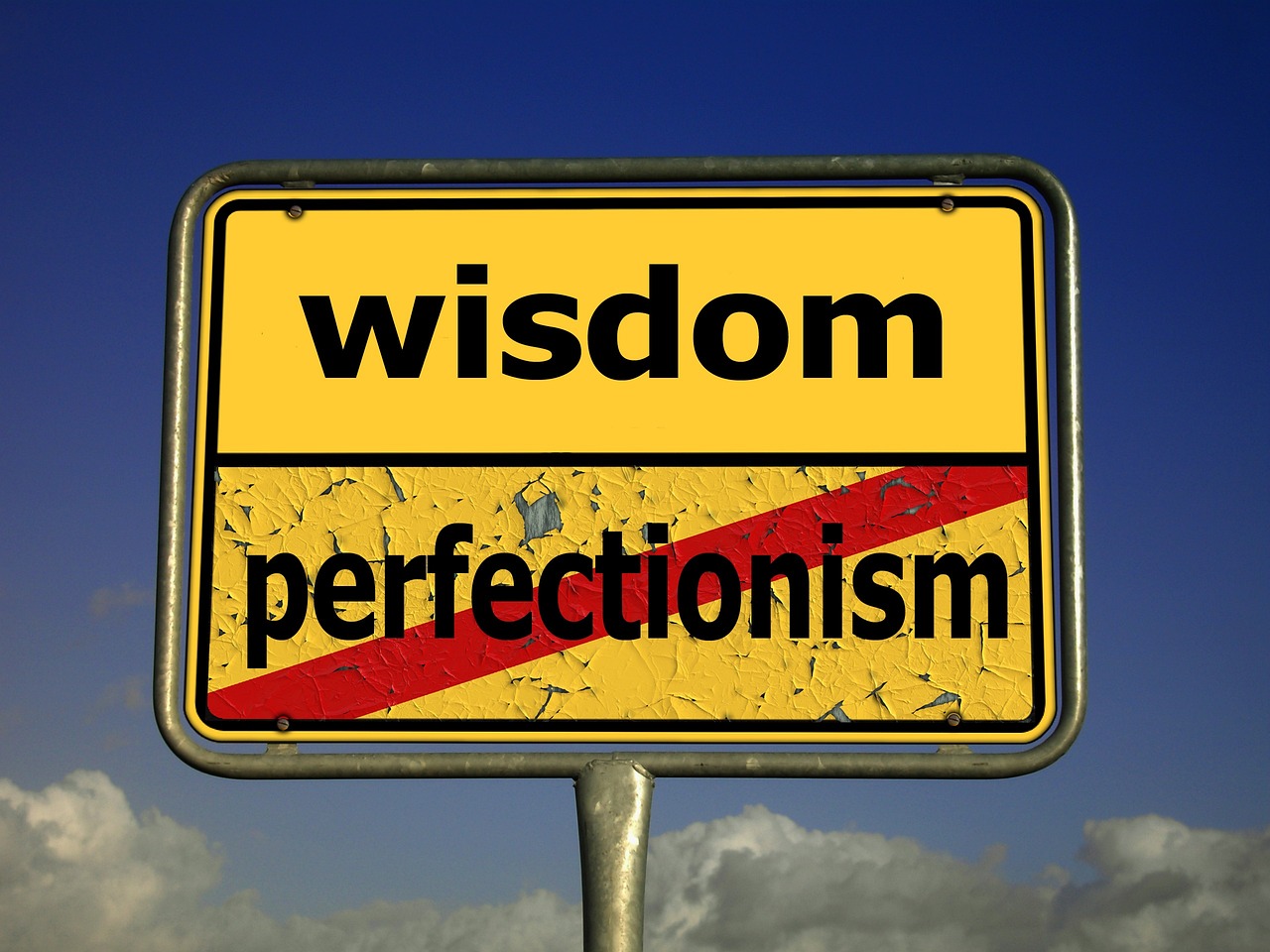
Future of Utopian Philosophy in Politics
The future of utopian philosophy in politics is a topic that stirs both excitement and skepticism. As we stand at the crossroads of unprecedented technological advancements and a growing awareness of social injustices, the question arises: can utopian ideals find a place in our political systems? Imagine a world where every individual has access to basic needs, where equality and sustainability are not just buzzwords but lived realities. Sounds dreamy, right? But how do we bridge the gap between these lofty ideals and the gritty realities of governance?
To envision the role of utopian philosophy in future politics, we must first consider the changing landscape of societal values. Today’s generation is increasingly vocal about issues such as climate change, economic inequality, and social justice. These concerns echo the sentiments of historical utopian thinkers, who envisioned societies where such problems were addressed head-on. The rise of movements advocating for Green New Deals and Universal Basic Income reflect a yearning for a more equitable society, suggesting that utopian ideals are not merely relics of the past but are gaining traction in contemporary discourse.
Moreover, technology plays a crucial role in shaping how we perceive and pursue utopian visions. The digital age has given rise to unprecedented connectivity, enabling grassroots movements to flourish. Social media platforms serve as amplifiers for utopian ideas, allowing diverse voices to unite for common causes. For instance, the Global Climate Strikes organized by youth activists worldwide illustrate how collective action can be mobilized around utopian goals. The potential for technology to facilitate democratic participation and transparency could lead to more responsive governance, aligning closely with utopian principles.
However, it’s essential to acknowledge the challenges that lie ahead. The tension between idealism and pragmatism remains a significant hurdle. While utopian visions can inspire, they can also set unrealistic expectations. The risk of disillusionment is palpable if these ideals are not grounded in feasible strategies. As we look to the future, it’s crucial to cultivate a balance between dreaming big and implementing practical solutions. This is where a nuanced understanding of realpolitik becomes vital, as it allows for the incorporation of idealistic visions into actionable policies.
Ultimately, the future of utopian philosophy in politics hinges on our collective ability to adapt and innovate. As we confront the complexities of modern society, there’s a growing recognition that utopian ideals can serve as guiding stars rather than fixed destinations. They can inspire frameworks for policies that prioritize human dignity, environmental sustainability, and social equity. The question is not whether utopian philosophy will influence politics but rather how it will evolve to address the challenges of our time.
In conclusion, as we navigate the uncharted waters of the future, the dialogue surrounding utopian philosophy will undoubtedly continue to shape political landscapes. By embracing both the visionary aspects of utopian thought and the pragmatic approaches of realpolitik, we can strive toward a more just and equitable society. The journey may be fraught with obstacles, but the potential rewards—a world closer to our ideal visions—make it a pursuit worth undertaking.
- What is utopian philosophy? Utopian philosophy refers to the creation of ideal societies where social, political, and economic issues are resolved in a perfect manner.
- Can utopian ideals be implemented in modern politics? While challenging, many believe that utopian ideals can inspire practical policies that address contemporary issues.
- How does technology influence utopian philosophy? Technology can facilitate communication and mobilization around utopian ideals, making it easier for movements to gain traction.
- What are some examples of utopian movements today? Movements advocating for climate action, social justice, and economic reforms often draw inspiration from utopian principles.
Frequently Asked Questions
- What is utopian philosophy?
Utopian philosophy is a concept that envisions ideal societies, often critiquing existing political systems. It explores what a perfect society could look like and the principles that would govern it, focusing on values like equality, justice, and communal well-being.
- How has utopian philosophy influenced modern politics?
Utopian philosophy continues to inspire various political movements and ideologies today. Many contemporary political leaders and activists draw on these idealistic visions to propose reforms and challenge the status quo, aiming to create a more equitable and just society.
- What are some historical examples of utopian societies?
Throughout history, thinkers like Thomas More and Karl Marx have proposed utopian societies. Examples include the Shaker communities in the U.S. and the Oneida Community, both of which experimented with collective living and shared resources in pursuit of idealistic goals.
- What are the main criticisms of utopian philosophy?
Critics argue that utopian philosophy is often impractical and can lead to dangerous outcomes. They contend that striving for unattainable ideals may result in authoritarianism or the suppression of individual freedoms, as seen in some historical attempts to create utopian societies.
- Can technology help achieve utopian ideals?
Yes, technology can play a significant role in realizing utopian visions. Innovations in communication, transportation, and sustainability can facilitate more equitable resource distribution and empower communities to work towards their ideal society.
- What lessons can we learn from past utopian experiments?
Past utopian experiments reveal both the potential and pitfalls of idealistic governance. Successful attempts often highlight the importance of community involvement and adaptability, while failures remind us of the dangers of dogmatism and lack of flexibility in achieving societal goals.
- How do utopian ideals clash with realpolitik?
The tension between utopian ideals and realpolitik is a common theme in politics. While utopian thinkers advocate for transformative change based on idealistic values, realpolitik often prioritizes pragmatic solutions that may compromise those ideals for the sake of stability and order.
- What is the future of utopian philosophy in politics?
The future of utopian philosophy in politics remains uncertain but promising. As societal challenges evolve, there may be renewed interest in idealistic visions that inspire collective action and innovative solutions, pushing for a more just and equitable world.


